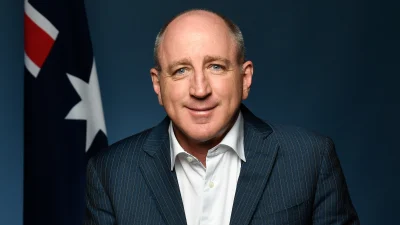Boutiques dominate Australian equities
You wouldn’t think that spending hours looking at ‘dogs’ would be the best way to win Money Management’s Fund Manger of the Year award for Australian equities. But that’s exactly how this year’s winner spends most of its time.
After using quantitative systems to narrow the stock universe down to 60, MIR don’t elect the best remaining Australian stocks immediately. In a unique stock-picking procedure, which combines the initial qualitative break-down with qualitative analysis, it weeds out the ‘dogs’ instead.
“MIR believes eliminating from the long portfolio the losing stocks is more effective than the generally accepted objective of identifying the winners. These loser value stocks are potential shorts,” explains MIR managing director Michael Trigaboff.
In a year when boutiques have completely outshone their bigger rivals in the most competitive asset class in Australia, Assirt fund analyst Veronica Gullo says the research group was particularly attracted to MIR’s unconditional, deep value invstment approach.
“Effectively they’re still doing the analysis on these top quality stocks, but they’re just going about it and thinking about it in a slightly different way,” she says.
“Not to mention that the quant systems they’ve got in place are so incredibly impressive for a boutique manager.”
Gullo also likes the unusual way MIR handles risk. Despite their boutique status, she says MIR’s risk control procedures are the envy of any institutional heavy.
“They don’t survive on risk controls just from an investment point of view, but from a business management point of view and that’s very unusual in a boutique.”
Then there’s the squad. MIR’s team of 12, who have an average of 14 years investment experience each, comprise some of the most experienced stock pickers and market analysts in the country, as well as ex-medical practitioners, an engineer and the founder of Lazard in Australia, Michael Trigaboff, “who I suppose would have a fairly accurate view of where the property market’s heading,” jokes Gullo suggesting that Michael might well benefit from a few tips from his uncle, well-known property developer Harry Trigaboff.
But Michael Trigaboff says MIR’s success can be attributed more to its investment process than its team.
And that process is translating into big bucks for MIR investors.
At 39.6 per cent for the year to February, the return from MIR’s Australian equities fund for institutional investors left some of their bigger competitors for dead.
MIR was the second best performing Australian equities fund manager in 2005, behind another boutique Ausbil Dexia, which returned 42.6 per cent.
In fact, all three finalists in this year’s Australian equities category were boutiques, with Ausbil and little known Prime Value joining MIR among the elite.
Ausbil got in on its exceptional performance, Gullo says. This was also the case with Prime Value, due to its “ridiculously impressive returns” of 35.8 per cent.
Gullo says she was also wooed by the strength of its team and the speed of its ascent in the market. The small Melbourne-based manager set up in late 2003, and went from a mere $17 million in funds under management in June last year to $65 million by the end of December 2004.
Although accepting that market conditions in 2004 were more suitable for alpha generators to prosper, Gullo said this year’s results might “make the big guys sit down and have a good look at themselves”.
“I think we’ve seen some wonderful boutiques come out that are really giving these big guys a run for their money and we thought it was more than important to recognise that.”
In addition to this category, MIR also took out this year’s Rising Star award.
— Ross Kelly
Recommended for you
Grant Hackett has been promoted from CEO of Generation Life to head up the wider Generation Development Group.
Tribeca Investment Partners has made a distribution hire from Australian Ethical in a newly-created role focused on the national intermediary market.
Asset managers may be urged to diversify their product ranges, but investment executives have warned any M&A deal should avoid simply filling gaps and instead consider long-term value creation.
Specialist wealth platform provider Mason Stevens has become the latest target of an acquisition as it enters a binding agreement with a leading Sydney-based private equity firm.














